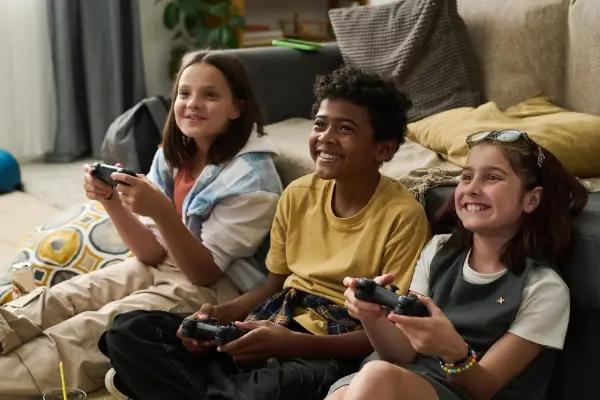Boredom: The Hidden Ingredient to Raising Resilient Kids
As a psychologist — and a parent — I often reflect on the childhood rhythms of the 1980s. Back then, free afternoons meant roaming the neighborhood on bikes, playing pick-up games in the yard, or having adventures with friends, all with minimal adult supervision. With only a handful of TV channels and classic toys like Rubik’s Cubes and Lite-Brite at our fingertips, our play was open-ended and imaginative. Sure, there were arcades and new technologies like home computers and video game consoles were making their debut, but most of our days were spent offline, guided by curiosity and creativity rather than scheduled activities or screens. We were expected to manage our own boredom—a skill that seems elusive for many kids today.

Boredom, while often uncomfortable, is one of the most valuable gifts we can give our children. It’s a natural—and essential—part of growing up. When children experience boredom, their brains are released from the constant tug of external stimulation, opening the door to mind-wandering. This is the space where creativity blooms, problem-solving skills develop, and self-discovery begins. Left to their own devices (and I don’t mean tablets!), kids invent new games, stories, or projects. They learn to plan, cope with frustration, and tolerate discomfort—all skills vital for tackling challenges both in school and later in life.
Navigating boredom helps children practice patience and emotional regulation. When they’re allowed to sit with their discomfort and invent their own fun, they’re building independence and self-confidence. These moments of “nothing to do” become the training ground for lifelong resilience and self-trust—not something to be avoided, but something to embrace.
The landscape today is very different. Our kids are surrounded by a constant stream of digital entertainment: smart devices, streaming shows, and video games that offer instant rewards and never-ending novelty. These technologies are designed to supply frequent doses of dopamine, the brain’s reward chemical, making traditional slower-paced activities—like reading, drawing, or building—seem less appealing by comparison. Over time, this reliance on instant stimulation can reduce curiosity, make boredom feel unbearable, and erode valuable coping skills.

How can parents nurture the upside of boredom? The answer is simpler than it seems: create more opportunities for screen-free time and resist the urge to over-schedule every moment. Trust that leaving stretches of unstructured time isn’t neglect — it’s good parenting. During these open-ended intervals, children:
- Build resilience as they learn to navigate boredom and discomfort.
- Discover new interests and passions that structured activities and screens might otherwise crowd out.
- Practice important social and emotional skills through creative play and collaboration.
- Reflect, observe, and gain greater self-awareness.
Technology certainly has its place in our lives, but I encourage parents to see boredom not as an enemy or something that need to fix for their children, but as a secret ingredient in raising emotionally healthy, resourceful, and imaginative children. When we leave room for boredom, we’re equipping our kids with the inner tools they’ll need to thrive—no matter how stimulating or fast-paced the world becomes.
“The cure for boredom is curiosity. There is no cure for curiosity.” ~Dorothy Parker

Michael Oberschneider, Psy.D. “Dr. Mike” is a clinical psychologist in private practice.
He can be reached at 703-723-2999, and is located at 44095 Pipeline Plaza, Suite 240, Ashburn.

